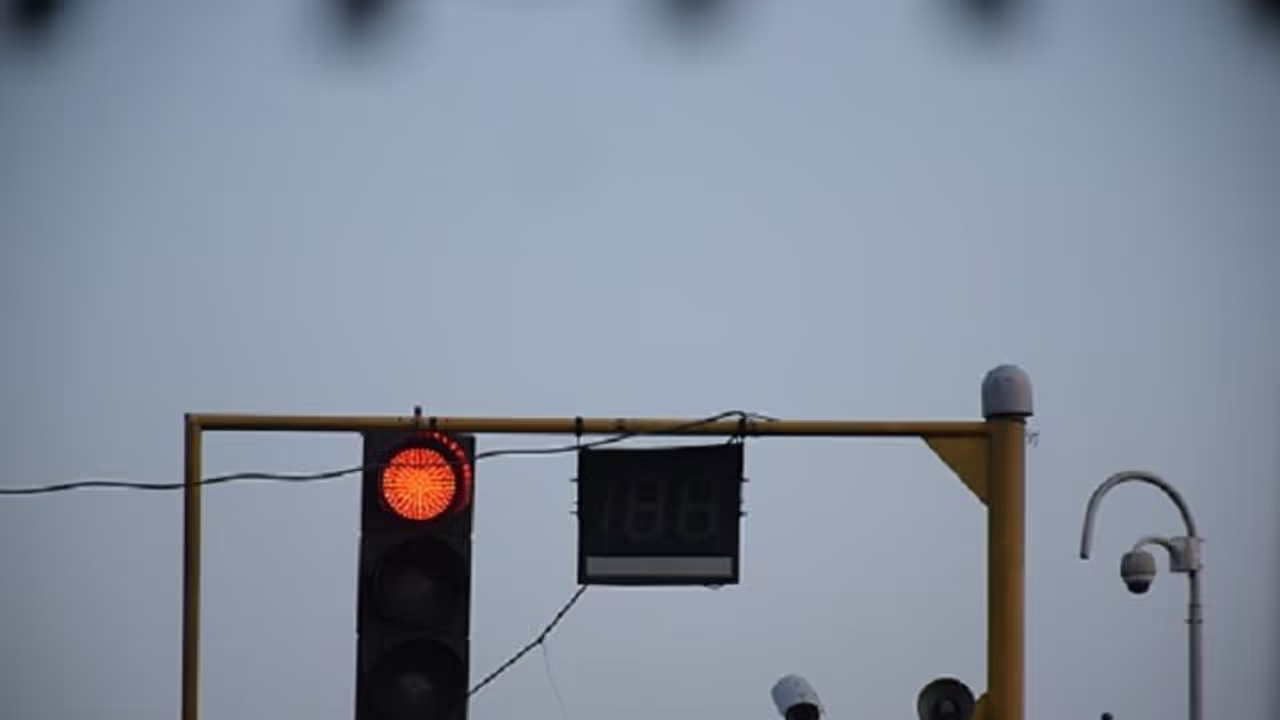Solar-powered traffic lights in Bengaluru, Karnataka went kaput in the last 3-4 days, leading to unregulated voluminous traffic building up on roads.
Bengaluru: Bengaluru is a cosmopolitan city that is busy the entire year. Throughout the day, the roads are chock-a-block with traffic.

Traffic lights play a very important role in monitoring traffic. And in turn, these traffic lights are alive because of the solar power. The moment they go kaput, traffic and lights, both come to a standstill.
This is precisely what happened on the roads of Bengaluru. For the last 3-4 days, traffic lights have cut a sorry figure, resulting in vehicle drivers losing their mental balance.
Major streets including Queens road, Infantry road and Hudson circle were at the receiving end.
But what on earth made the traffic lights dysfunctional?
Well, these traffic lights use Light Emitting Diodes (LED). And these traffic lights are powered by solar energy. All thanks to the inclement weather in the city, which can be sourced to the disdainful rains in North Karnataka, these LEDs find it hard to function.
Sri Hari, a traffic expert says, “LEDs don’t consume much power, unlike regular bulbs. These LEDs are powered by solar energy. But their intensity will be hampered if there is cloudy weather.”
As a consequence of the signals not directing traffic, traffic cops have to be posted physically, in order to regulate traffic.
However, in spite of this drawback, LEDs are used worldwide.
The expert adds, “The life of normal bulbs isn’t very good, whereas the life of LEDs is extensively long. The light given out by normal bulbs does not reach long distances. That is the reason LEDs are preferred.”
Bengaluru has embraced solar energy as the way forward because it is cost-effective and doesn’t have any adverse impact on the environment. The city has lakhs and lakhs of traffic signals and in the event of them functioning well, the police find it hard to regulate traffic.
